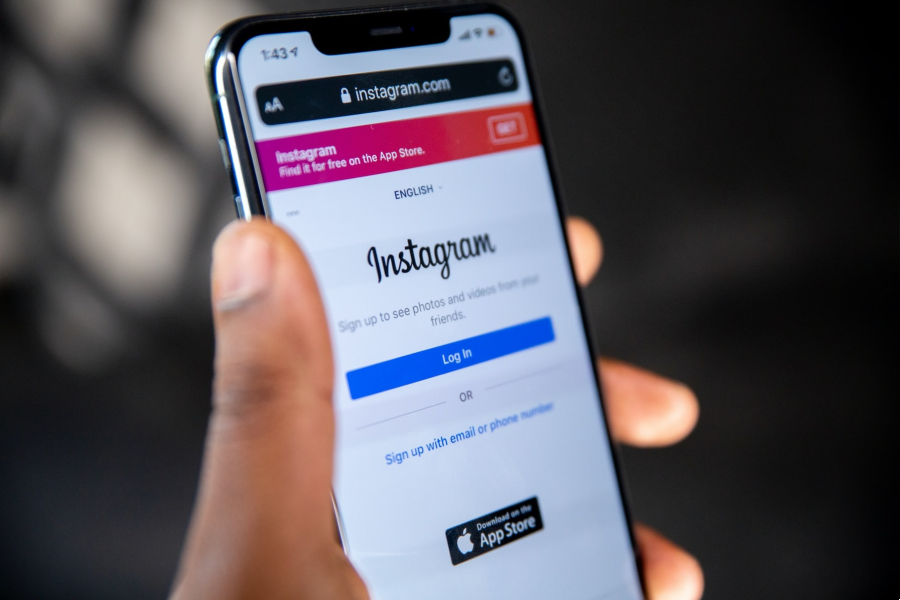
Have you ever felt like an invisible weight was holding you back from achieving your biggest goals? Anxiety doesn’t have to be a roadblock; it can become a stepping stone to personal growth and remarkable achievements.
Every successful person you admire has faced moments of doubt, fear, and uncertainty.
What separates them is how they choose to respond. By embracing anxiety, learning from it, and using it as fuel, you can turn it into a powerful tool for overcoming challenges and reaching new heights.
Understanding Anxiety: More Than Just Nervousness
Anxiety is a complex emotional experience that goes far beyond simple nervousness. It’s a powerful psychological response that can trigger physical reactions, impact decision-making, and potentially derail personal aspirations. Many teens and young adults struggle with understanding and managing these intense feelings.
Mental health professionals understand that anxiety is a complex experience unique to each person, with some individuals experiencing racing thoughts while others might feel intense physical sensations like rapid heartbeat or sweating. anxiety symptoms can include both emotional and physical reactions that disrupt daily functioning and personal progress, making it crucial to recognize and address these diverse manifestations early on.
The Social Media Anxiety Trap
Social media can be a major source of anxiety for teenagers and young people. The constant comparison to perfectly curated online lives can make you feel like you’re not good enough or falling behind. This digital pressure creates unrealistic expectations and can seriously impact your mental well-being.
Scrolling through social media can trigger intense feelings of inadequacy and self-doubt. The carefully filtered posts of classmates and influencers make it seem like everyone else has a perfect life. Learning to recognize these posts as highlights, not reality, is crucial for maintaining your mental health and self-confidence.
School Stress and Academic Pressure
For many, school is like a pressure cooker of anxiety and stress. There is pressure to live up to homework, tests, social dynamics, and future expectations, all at the same time. The fact that these challenges exist is the first step to developing the kind of coping strategies that can combat them.
You don’t have to get defined by academic pressure and as a potential. You learn how to set realistic goals, manage your time, and know when to ask for help, which changes your school experience. Don’t forget that your grades don’t decide your whole future or your value.
Technology and Mental Health Breaks
Technology can be both a blessing and a curse when managing anxiety. Constant notifications, social media, and digital noise can increase stress levels and create mental fatigue. Understanding when and how to take digital breaks is crucial for maintaining mental well-being.
Creating healthy technology boundaries helps reset your mental state. This might mean setting specific times for device use, turning off notifications, or engaging in offline activities. Finding a balance between digital connection and personal space can significantly reduce anxiety.
Family Dynamics and Communication
Family relationships can significantly impact anxiety levels for teenagers. Open and honest communication with parents or guardians can provide crucial emotional support. Learning to express your feelings and concerns can help create a supportive home environment.
Sometimes, family members might not immediately understand your anxiety. Patience and clear communication are key to helping them understand your experiences. Seeking family counseling or mediated conversations can also help bridge understanding.
Physical Health and Mental Wellness
Physical health is important in managing anxiety and living a dream. Exercise, diet, and sleep are three things you can do to remedy mental well-being. Your health depends on your energy body and your mind-body whatever you put in sometimes lifts you up and sometimes knocks you down.
It doesn’t have to be complicated or overly overwhelming even just developing some healthy habits. Find small, achievable goals such as drinking more water, getting more sleep, or finding some kind of physical activity that you enjoy. Perfection is very important, but consistency is more important in building a healthy lifestyle.
Discovering Personal Passions and Interests
Finding activities and interests that genuinely excite you can be a powerful antidote to anxiety. Exploring different hobbies, clubs, or creative outlets helps build confidence and provides a sense of purpose. These activities can become safe spaces where you feel most like yourself.
Trying new things might feel scary, but it’s an essential part of personal growth. Don’t be afraid to step out of your comfort zone and explore different interests. Each new experience is an opportunity to learn about yourself and build confidence.
Practical Tools for Managing Anxiety
Essential Anxiety Management Techniques:
- Deep breathing exercises
- Regular physical activity
- Journaling emotional experiences
- Establishing consistent sleep patterns
Seeking help from school counselors, therapists, or trusted mentors can provide invaluable insights and personalized strategies for managing anxiety.
Comparison of Anxiety Management Approaches
| Approach | Effectiveness | Time Investment | Accessibility |
| Mindfulness | High | Low | Easy |
| Professional Counseling | Very High | Medium | Moderate |
| Self-Help Techniques | Moderate | Low | Very Easy |
| Physical Exercise | High | Medium | Easy |
Creating a Personal Action Plan
Making an anxiety action plan might sound super complicated, but it’s pretty straightforward. First, grab a journal or notebook that feels cool and personal to you. This will be your secret weapon for tracking and understanding your anxiety.
Writing down your anxiety triggers is like creating a map of your emotional landscape. You’ll start to notice patterns about what makes you feel stressed or overwhelmed. Identifying these triggers helps you create a game plan for handling tough moments before they spiral out of control.
Tracking Your Emotional Journey
Recording your anxiety is not about being perfect, it’s about being truthful with yourself. You may feel like a superhero on some days and stuck on others. The trick is to slowly follow through without beating yourself up about it.
Your journal for your anxiety can be as simple as mood notes up to the coping strategies that work for you. You might find that drawing, talking to a friend, or going for a walk, in some way calms your nerves. Everyone’s handling of their anxiety is not the same, and that’s okay.
Building Your Support Squad
Creating a supportive network isn’t about having millions of best friends, it’s finding your ride-or-die people. These are your friends, your mentors, who get you and want you to succeed! Pick people who build you up, and keep you happy about yourself.
School counselors, trusted friends, family sometimes, or even online support groups are a part of your support squad. Don’t be afraid to ask for help when you need it reach out! Much like building a safety net, but stronger like a building block to protect you from falling whilst anxiety tries to trick you into thinking you can’t.
Your Anxiety Doesn’t Define You
Overcoming anxiety isn’t about magically making all your fears disappear overnight. It’s about learning that it’s okay to be brave when things are scary and overwhelming. From any small step you’re taking are victories worth celebrating.
Your anxiety is way smaller than your dreams and you have the power to tell yourself so. You will have some days that are tough, but that is normal. There are no excuses not to make your dreams come true. With the right tools, support, and the right mindset you can absolutely crush your goals and live the life you’ve probably always imagined.
Frequently Asked Questions
How long does it take to manage anxiety?
Managing anxiety is a personal journey with no universal timeline. Progress depends on individual commitment, techniques employed, and underlying factors.
Can anxiety completely disappear?
Anxiety doesn’t necessarily disappear but becomes more manageable with consistent practice and appropriate strategies.
Are there natural ways to reduce anxiety?
Regular exercise, proper nutrition, adequate sleep, and mindfulness practices can significantly help reduce anxiety symptoms.
Latest Posts
- Giddy Up! GallopNYC To Expand Services To Equestrian Facility In Staten Island
- McQuillan’s World: A Phoenix Will Arise From Ashes
- The Intricacies Of SEO Success: Insights And Strategies For Better Web Presence
- Sponsored Love: Experience Cozy Luxury And Culinary Delights At Watson Lake Inn Bed And Breakfast In Prescott, Arizona
- Google Analytics Secrets – Unearthing Lesser-Known Features For Advanced Insights
Become a Harlem Insider!
By submitting this form, you are consenting to receive marketing emails from: . You can revoke your consent to receive emails at any time by using the SafeUnsubscribe® link, found at the bottom of every email. Emails are serviced by Constant Contact








